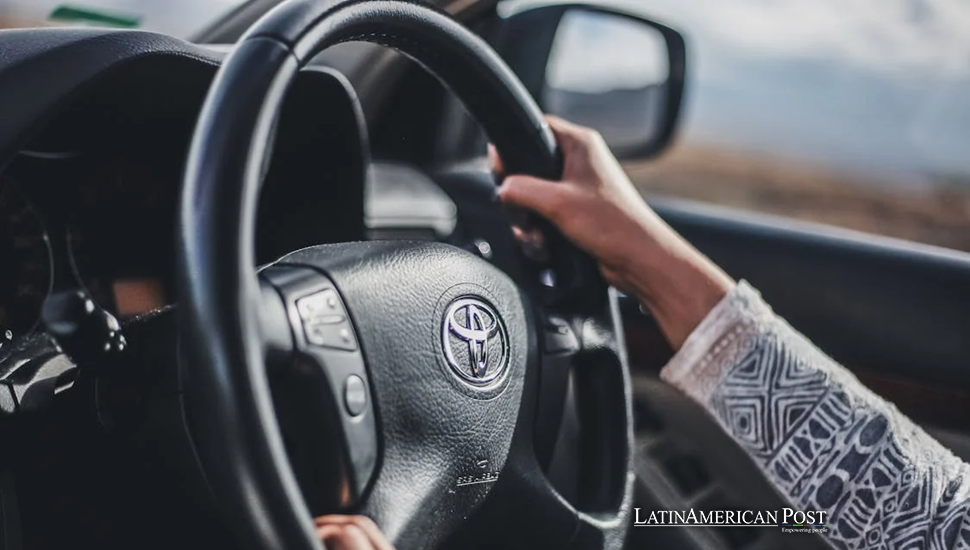Bolivian Women-Driven Taxi Services Transform Safety

In Bolivia, sexual violence is very common. Women-led taxi services offer security and independence. These new initiatives protect passengers who are vulnerable. Female drivers find empowerment through these services. They break free from cycles of abuse and inequality.
A Mother’s Drive for Change
The idea for Bolivia’s women-led taxi services emerged from a harrowing experience. Jacqueline Diaz, a mother in La Paz, received a frantic call from a friend one morning: her 12-year-old daughter Michelle had been abducted on her way to school.
Michelle’s nightmare began when a van pulled up beside her, two men dragged her inside, and the vehicle sped off. She escaped only by jumping out when the van slowed on an unpaved road. Shaken and terrified, Michelle ran to the safety of her mother’s friend’s shop.
The incident left a lasting scar on Diaz. “It really made a big impression on me,” she told The Guardian. “My daughter was kidnapped two blocks from school. Something clicked.”
Determined to ensure her daughter’s safety, Diaz learned to drive, bought a car, and joined Mujeres al Volante (Women at the Wheel), a taxi service exclusively for women, children, and older adults. For three years, Diaz worked as a driver, embodying the service’s mission of providing safe, secure transportation.
Mujeres al Volante: A Safe Ride
Mujeres al Volante was founded in 2017 by Gabriela Strauss, who drew inspiration from her struggles as a single mother in need of flexible work. Amid reports of women being attacked or kidnapped by taxi drivers, Strauss decided to create a safer alternative. “I didn’t want any family to go through that,” she explained to The Guardian. “I used my car to start a secure service for people’s loved ones.”
Strauss’ business model took off after a simple Facebook post. Within days, her post was shared widely, and the service gained a loyal clientele. Today, Mujeres al Volante has grown to include 38 women and seven men as drivers. Male drivers are limited to tasks requiring heavy lifting or assisting clients with wheelchairs.
Clients request rides through WhatsApp, receiving a photo of the driver, the car, and its license plate for added security. Although fares are slightly higher than standard taxis, clients pay for the peace of mind that drivers will ensure their safety, even waiting with children until a guardian arrives.
For Strauss, the service is about more than transportation. “A normal driver wouldn’t do this,” she said, recalling occasions like picking up a six-month-old baby from daycare to help a working mother. “We became a solution for families.”
Empowering Women Drivers
Mujeres al Volante is not just protecting passengers; it’s also empowering women drivers. Many are single mothers or women over 45, a demographic often excluded from traditional job markets in Bolivia.
The company has inspired similar initiatives across the country. In El Alto, a neighboring city to La Paz, Linea Lila operates under the umbrella of the Central for Productive and Entrepreneurial Women of El Alto (Cemupe). Founded after a high-profile femicide case, Cemupe offers women more than jobs—it provides tools for independence, including legal advice, driving lessons, and training in psychological resilience.
“Sometimes, women don’t leave abusive relationships because they don’t know how they’ll survive financially,” explained Julia Quispe, Linea Lila’s executive secretary. “Transport has become a way out for many women.”
Eighty women currently work as Linea Lila drivers, with 20 on duty daily. Most are survivors of domestic violence, using the service as a pathway to rebuild their lives.
A Broader Fight Against Violence
Bolivia has one of the highest rates of sexual violence in Latin America. A 2016 study found that 75% of urban women and 71% of rural women had experienced violence from a partner. In 2021, Bolivia reported one of South America’s highest femicide rates.
Services like Mujeres al Volante and Linea Lila are tackling this grim reality head-on by providing not just transportation but also safety, autonomy, and community. Both companies plan to expand their services to include affordable minibus routes, making secure travel accessible to more people. “Safety and the violation of women’s rights are global issues,” Strauss told The Guardian. “Women, children, and the elderly are among the most vulnerable everywhere. Services like ours should exist in every country.”
The success of these women-led taxi services has spread beyond Bolivia. It has started discussions about transportation’s role in fighting gender-based violence. The drivers see their work as more than just a job. They have a mission to foster safer communities. It is very important to them.
Also read: Catholic Church Opposes Lifting El Salvador’s Mining Ban
“Mujeres al Volante” and its counterparts prove that small, locally-driven initiatives can have a big impact. By prioritizing safety and empowering women, they’re transforming lives—one ride at a time.




